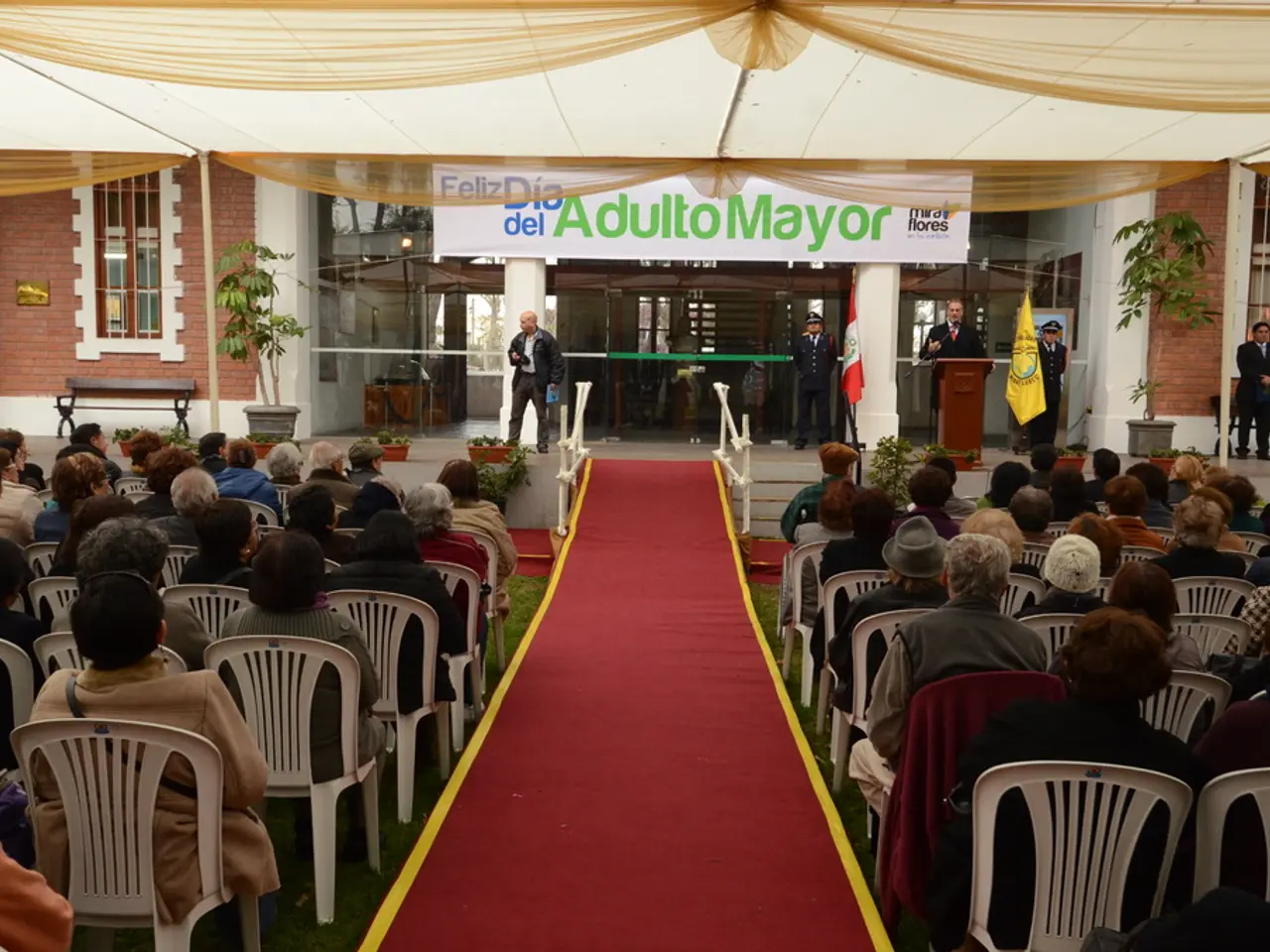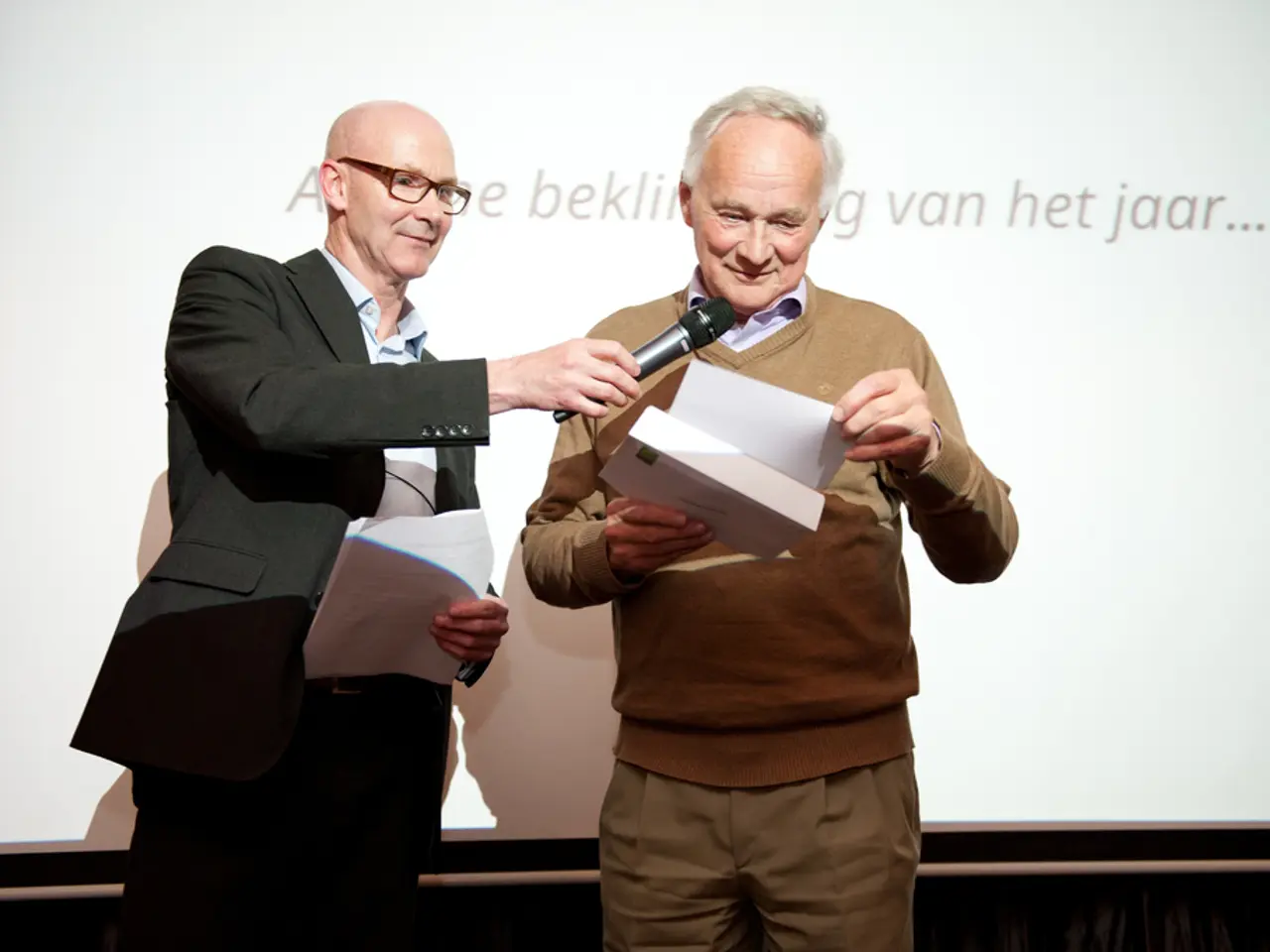Prominent theatre director Claus Peymann has passed away.
Claus Peymann, a renowned German theatre director and manager, passed away on Wednesday at the age of 88 in Berlin-Köpenick. Known for his major contributions to German and Austrian theater, bold political statements, and lasting impact on theatre culture, Peymann leaves behind a profound artistic legacy.
Peymann's career spanned over five decades, during which he premiered works by some of the most influential contemporary playwrights, including Peter Handke, Thomas Bernhard, and Elfriede Jelinek. He began his career as chief director at the Theater am Turm (TAT) in Frankfurt (1966–1969), premiering Handke's Offending the Audience, Kaspar, and The Ward Wants to Be Guardian, as well as Gerlind Reinshagen's Doppelkopf.
In 1970, Peymann started a notable collaboration with Austrian playwright Thomas Bernhard by premiering Bernhard’s first play A Party for Boris at Hamburg Schauspielhaus, later staging numerous Bernhard plays. He co-founded the new Schaubühne in Berlin in 1971 with Peter Stein, where he directed Handke's Ride Across Lake Constance (1971).
From 1974, as director of drama at the Württemberg State Theaters in Stuttgart, Peymann staged classic productions such as The Robbers, Käthchen of Heilbronn, Faust I and II, and Iphigenia, gaining significant acclaim. In 1979, he became the manager of Schauspielhaus Bochum until 1986, during which time the theater became one of Germany's top theaters.
Peymann's most prominent leadership was at the Burgtheater in Vienna (1986–1999), Austria’s national theater and one of the most prestigious German-language stages. Following that, he was the artistic director and manager of Bertolt Brecht’s Berliner Ensemble until 2017.
Peymann was known for his outspoken political and social commentary through theater and public remarks. A notable controversy in 1977 involved his collection of donations for the dental treatment of imprisoned Baader-Meinhof (Red Army Faction) members, which stirred public debate about his political stance. He was also remembered for pithy, often provocative remarks, reinforcing theater’s role as a forum for political critique and social awareness.
Peymann's productions often pushed boundaries by premiering politically charged and avant-garde plays. His leadership helped transform the theaters he ran—especially Schauspielhaus Bochum and the Burgtheater—into internationally recognized institutions known for artistic innovation and political engagement. His tenure at the Berliner Ensemble continued Bertolt Brecht’s legacy of politically conscious theater, blending tradition with modernity until his retirement in 2017.
Peymann's influence extended beyond staging; he helped shape German-speaking theater's ideological and aesthetic discourse, championing works that challenged societal norms and authoritarianism. Among many honors, Peymann received the Theaterpreis Berlin in 1995 and was made an honorary member of the Burgtheater in 2012, underscoring his stature in the theatrical world.
Peymann will be remembered as an unyielding champion of the freedom of art. Despite a decades-long career, he continued to fight passionately for the theater. At his departure from the Berliner Ensemble, Peymann said, "The most important thing about theater is love." Culture State Minister Wolfram Weimer mourns Peymann and calls him a master of provocation and renewal, while Berlin's governing mayor, Kai Wegner (CDU), calls Peymann one of the most influential personalities of modern German theater. Actor Sabin Tambrea writes on Instagram that Peymann shaped the German-speaking theater scene like a primal force.
Peymann's legacy, however, was not without controversy. He was sharply criticized for offering a former RAF terrorist, Christian Klar, an internship at his theater in 2008. His internship offer to Klar was a controversial action, and Peymann was known for his political statements and actions off the stage. At the Berliner Ensemble, Peymann broke box office records and was criticized for his classic productions being stale. Nevertheless, Peymann's influence on German and Austrian theatre remains undeniable.
[1] "Claus Peymann." Deutsche Nationalbibliothek. https://deutsche-biographie.de/p002743.html [2] "Claus Peymann." Burgtheater. https://www.burgtheater.at/de/personen/claus-peymann [3] "Claus Peymann." Schauspielhaus Bochum. https://www.schauspielhaus-bochum.de/de/personen/claus-peymann/ [4] "Claus Peymann." Theater am Turm. https://www.theater-am-turm.de/en/claus-peymann [5] "Claus Peymann." Berliner Ensemble. https://www.berliner-ensemble.de/en/claus-peymann [6] "Claus Peymann." Stuttgarter Staatsoper. https://www.stuttgarter-staatsoper.de/de/personen/claus-peymann
In memory of Claus Peymann's significant contributions to the German and Austrian theater, radio broadcasts may dedicate an evening of entertainment to his life and work, featuring insights from celebrities who were influenced by his groundbreaking directing style and outspoken political commentary. The arts community could come together in mourning and celebration of Peymann's profound impact on theater culture, acknowledging his legacy as a master of provocation, renewal, and advocacy for artistic freedom.






